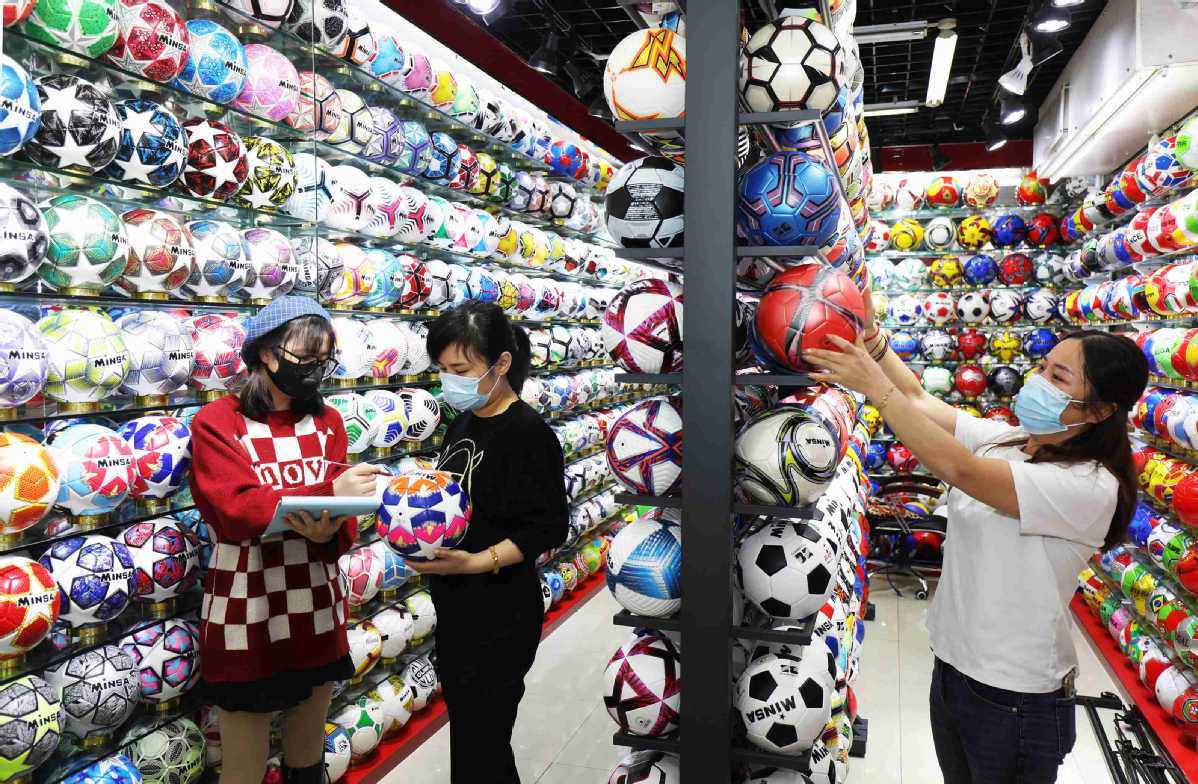
It is officially known as District 1 of China Commodity City. They ought to call it Rainbow Plastic Fantasyland. Welcome to the world’s largest small commodities market.
Step within the behemoth, beige box located in Yiwu, a county-level city located 300 kilometers south of Shanghai in prosperous Zhejiang province, and the onslaught is immediate. A century’s supply of kiddy birthday party paraphernalia is packed into one storefront, while the shop next door stocks enough neon swim caps and inflatable pool toys to equip a pint-sized aquatic army.
- China Reliable Sourcing Agent in the world’s largest wholesale market
- China Yiwu Fair 2024
- Rising trade with Russia in the wake of the Ukraine conflict
- Welcome to the world’s largest small commodities market.
- How to get to Yiwu City from Guangzhou Canton Fair
- Invitation to Canton Fair 2024
- Spring Canton Fair 2024 is currently In progress
- Rainproof PE shoe cover
- Exploring Yiwu International Trade City
- How to get to Yiwu City from Shanghai
- Yiwu City Transfer to Hangzhou Xiaoshan International Airport
- Yiwu Airport Private Arrival Transfer to City Area
- Yiwu Railway Station Private Departure Transfer from City Area
- Are you planning a business trip to Yiwu
- Look around Yiwu wholesale market
- Where is Yiwu International Trade City?
- The tech giant’s CEO has grand plans for TikTok
- Announcing the launch of TikTok’s Youth Council
- How much should I spend for a rug?
- What are the standard sizes for area rugs?
- What is the most durable material for area rugs?
- What is the best blanket material?
- Carpets are a form of floor covering that are typically made from woven fibers, such as wool, nylon, polyester, or polypropylene.
- Floor mats are designed to protect floors from wear.
- Yoga mats are essential for practicing yoga asanas
- Importance of using floor mats
- door mat indoor and outdoor
- Say goodbye to traditional sponges with gentle nylon scouring pad sponge
- The Benefits of a Stainless Steel Vacuum Flask
- Biking is a popular form of exercise
- Exploring the great outdoors and enjoying the beauty of nature through hiking
- How many foreigners live in Yiwu?
A hot pink, blow-up bopper that says Happy Mother’s Day in English and Spanish beckons from the next shop. The salesman says it’s mine for RMB0.3… provided I buy at least 3,000. There are walls tacked with refrigerator magnates celebrating far-flung destinations from Charleston in South Carolina to Zakynthos Island in Greece. Plastic Jesus candles are shelved next to identical models emblazoned with the image of Vishnu.
It goes on. And on. And on. Aisle upon aisle, it is awful and entrancing in equal measure, and begs the question: “Who could possibly want all this crap?” The answer, of course, is everyone.
Situated on poor farming lands, Yiwu has relied on trade to support its economy for centuries. Within the last 25 years though, it has become an international export powerhouse. It supplies half of the world’s Christmas products alone, and is also known as ‘Sock Town,’ producing over three billion pairs of socks for Wal-Mart, Pringles and Disney annually.
The city also functions as a sort of ‘Wall Street’ for the counterfeiting industry, providing a vast marketplace where an estimated 100,000 imitation products are openly traded and 2,000 tons of fakes change hands daily.
“Yiwu supplies half of the world’s Christmas products, and is also known as ‘Sock Town,’ producing over three billion pairs of socks for Wal-Mart, Pringles and Disney annually.”
The market, or CCC, is frequented largely by North African and Middle Eastern traders. Yiwu specializes in cheap stuff, which is good for developing markets. Just don’t go expecting durability in the wares.
French-Turkish Ahmet Karabas, general manager of JusTrade, sources Chinese suppliers for clients. He says one mistake newbies make is not ensuring they get the exact product they negotiated for. Often suppliers reduce quality to drive up profit. He also warns not to get carried away bargaining – driving the price down compels them to drum up shoddier goods.
“It’s only a business city,” says Karabas. “I don’t advise anybody to come here for tourism.”
Yet, while not your standard scenic day trip, Yiwu is surely one of the truly genuine faces of multi-faceted modern China. Navigating through a hair-accessory gauntlet where scrunchies and sparkly barrettes are piled up to hip-level, the possibilities seem endless. Shopkeepers would have you think so too. “Every country can!” they enthusiastically chirp when asked where they can ship to.
It takes several hours to cover just one of the five districts, but a half day is all we’d recommend for an idle wander. Coin-operated massage chairs and women selling watermelon and cucumbers may offer much needed respite to buyers, but the lack of sunlight and never-ending barrage of knick-knack tackiness still start to suffocate.
Then it’s time to make tracks to one of the nearby Middle Eastern restaurants catering to business travelers, where tender lamb kebabs, stuffed grape leaves and hummus go for about half the price they would in a first tier city.
